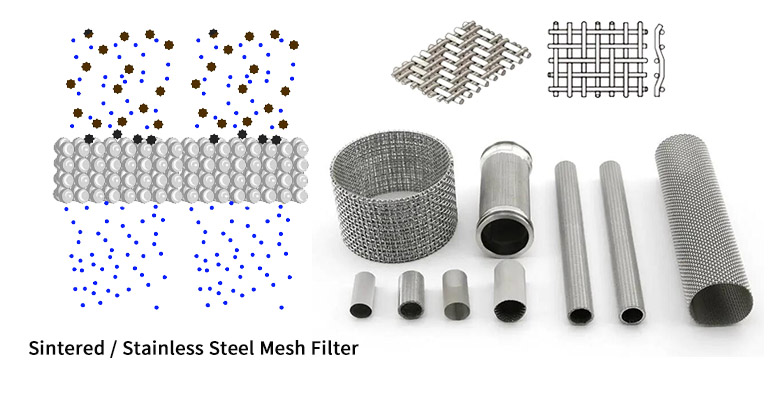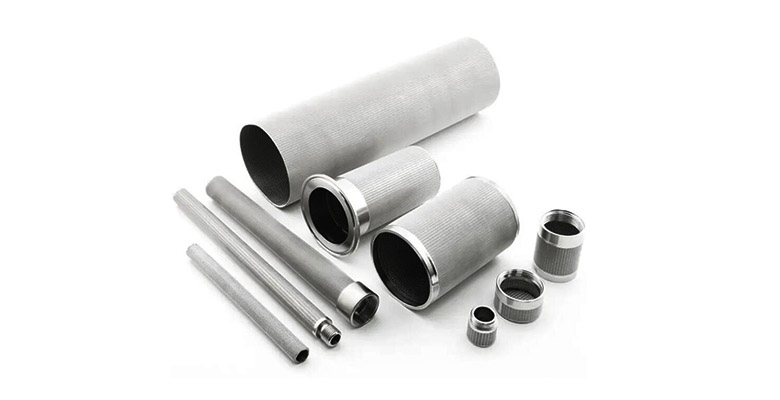-
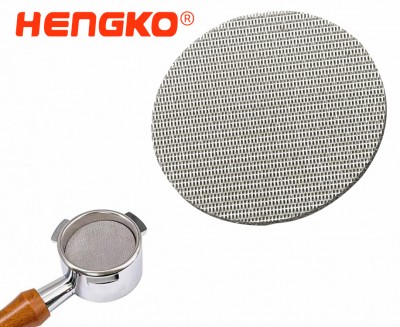
Coffee Puck Screen for Second Coffee Puck Lower Shower
Second coffee puck screen or contact screen for 51 58mm More stable and uniform flow rate;The second coffee puck screen can reduce the channel effici...
View Detail -
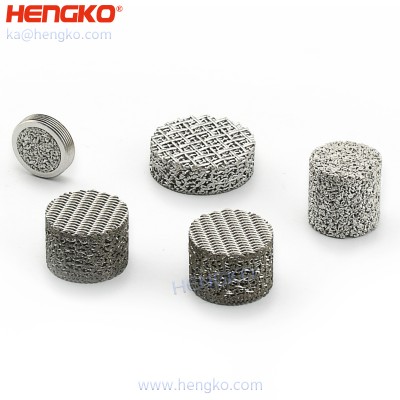
High Pressure Snow Foam Generator Mesh Filter
High-pressure snow foam lancer compressed knitted wire mesh filter High pressure foam maker and foam generator nozzles assembly in Snow Foam Lance. The foam ...
View Detail -

Sintered Porous Metal Leaf Disc Filter For the Polymer Melt Industry
Leaf Disc and Solid Plate Filters for critical hot melt polymer filtration applications. Leaf disc and solid plate filters are designed for critical h...
View Detail -

Tobacco Pipe Filter Stainless Steel 304 316 Mesh Screen Filter
Cigarette mesh filter disc is also called cigarette filter mesh disc, bong burner mesh, Arabic hookah filter, or faucet water impurity filter. It is mainly u...
View Detail -
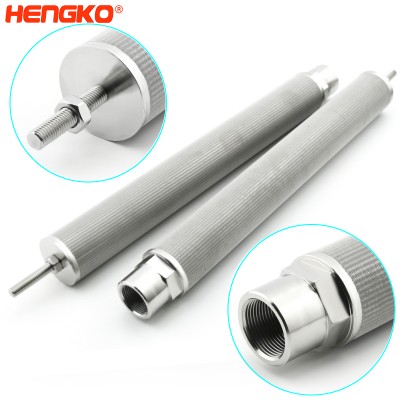
Wholesale Wire Mesh Filter Stainless Steel 10 Micron Sintered Tube For Pharmaceutical M...
Stainless steel filters are ideal for use in demanding engineering specifications that require filtration in adverse environmental conditions, such as jet en...
View Detail -
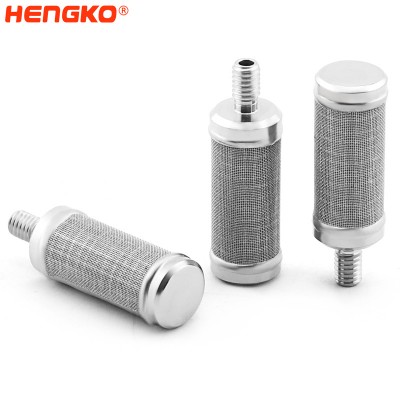
20 Micron 316 Stainless Steel Wire Mesh Filter Cartridge Inner Core 32mm Length M4 Thread
Wire mesh filter is wire mesh that is stretched by use of metal threads, with fine openings between the different metal threads. When polluted water is pump...
View Detail -
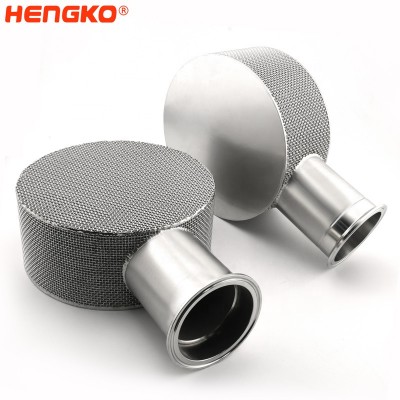
Reverse Osmosis Stainless Steel Filter Water Filter Purifier Filtration System SS 316 M...
Reverse Osmosis Stainless Steel Filter Water Filter Purifier Filtration System SS 316 Mesh Cartridge Filter Product Description Everyone is looking for n...
View Detail -
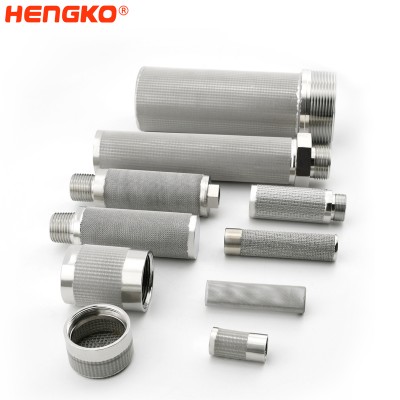
OEM Porous Metal Stainless Steel Filter Vacuum Electron Beam Welding Sintered Metal Fil...
Product Describe Electron beam welding is used in many industries such as aerospace, atomic energy, automotive, and electrical and electric instrumentation b...
View Detail -
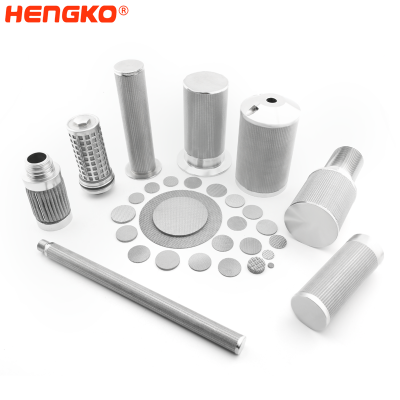
CEMS Online Smoke Analyzer Gas Sampling Probe 44.5mm*121mm a Unique Probe Design
Product Describe * Dust separation in the process * For dust concentrations above 3g/m3 * Large active surface * Long lifetime * Low differential pressur...
View Detail -
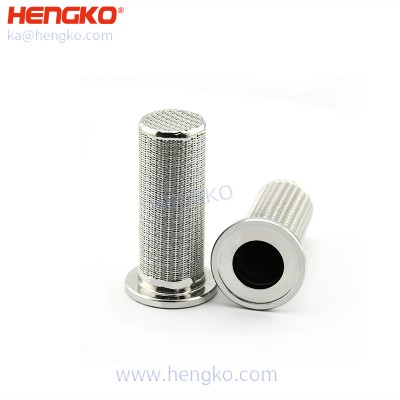
Stainless Steel Metal Mesh Filter last Chance Filters for the Printing Industry
HENGKO manufactures metal mesh filter elements in a broad range of materials, sizes, and fittings so they can be easily specified with the characteristics an...
View Detail -
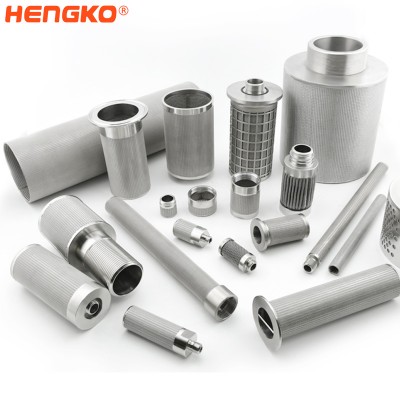
316L Stainless Steel Porous Metal Media 1/4″ and 1/2″ Face Seal Gasket Filter for Extre...
HENGKO manufactures porous metal media in a broad range of materials, sizes, and fittings so they can be easily specified with the characteristics and config...
View Detail -
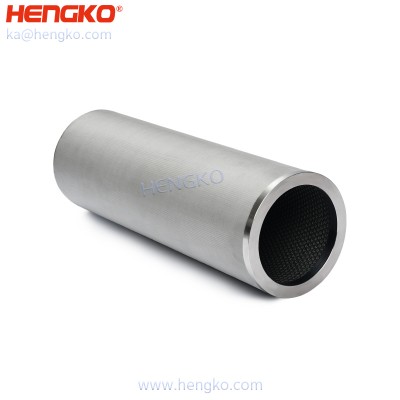
Customized 1 15 40 70 100 Microns Cylindrical Sintered Metal Stainless Steel 316L Porou...
Product Describe HENGKO stainless steel filter elements are made by sintering 316L powder material or multilayer stainless steel wire mesh at high temperatur...
View Detail -
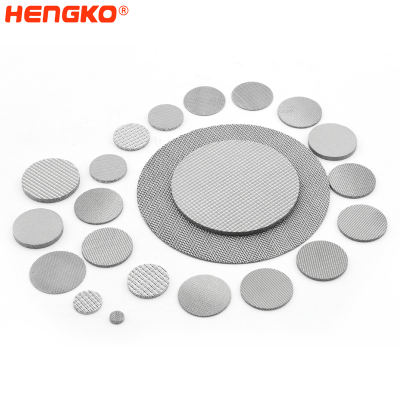
Resistance and Corrosion Resistance Sintered Porous Metal Filter Elements for Hot Gas P...
HENGKO manufactures a comprehensive and diverse range of medium, fine and ultra-fine filter meshes. A growing number of sintered meshes are now available to ...
View Detail -
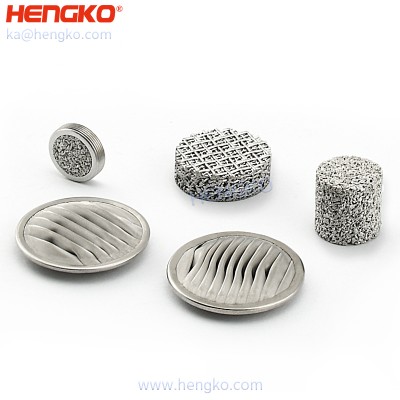
small sintered stainless steel mesh disc filter for use on inkjet Printers
Sinter wire mesh filters are usually used for purification and filtration of liquid and gas, separation and recovery of solid particles, transpiration coolin...
View Detail -
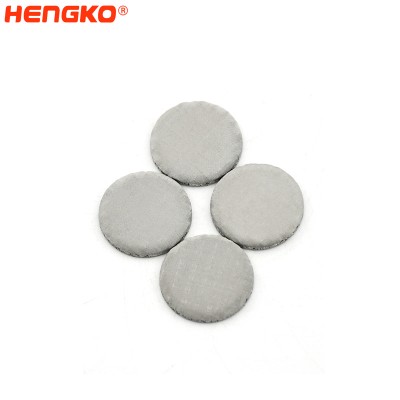
Catalyst Filtration with Leaf Filters Sintered Metal Mesh Filter Disc for the Recovery ...
HENGKO manufactures filter elements in a broad range of materials, sizes, and fittings so they can be easily specified with the characteristics and configura...
View Detail -
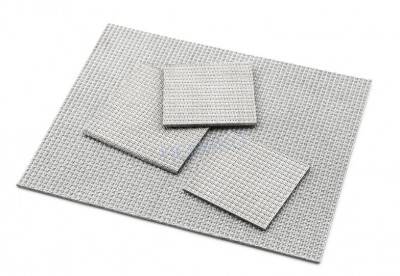
HENGKO sintered stainless steel 316 porous metal gas diffusion layers filter sheet for ...
HENGKO stainless steel sintered wire mesh filter plate is made from multiple layers of woven wire mesh panel together using a sintering process. This process...
View Detail -
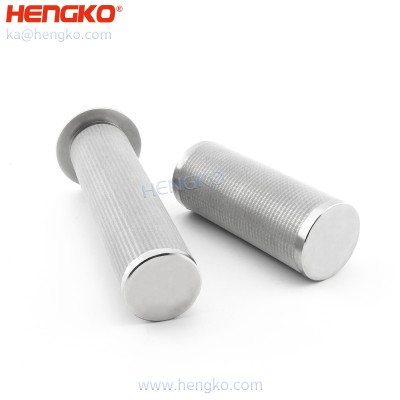
customized stainless steel 316 316L wire mesh tube / cartridge filter used for medical ...
HENGKO sintered wire mesh tube/cartridge filters are usually used for purification and filtration of liquid and gas, separation and recovery of solid particl...
View Detail -
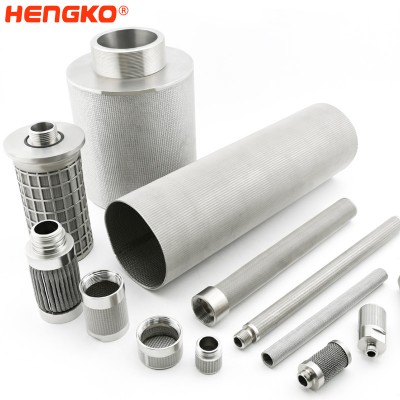
Customized medical 304 316 316L stainless steel filter mesh cartridges from HENGKO
Made of a multi-layer sintered 316 or 304 stainless steel strainer, it has the properties of heat resistance, pressure resistance, and corrosion resistance.T...
View Detail -
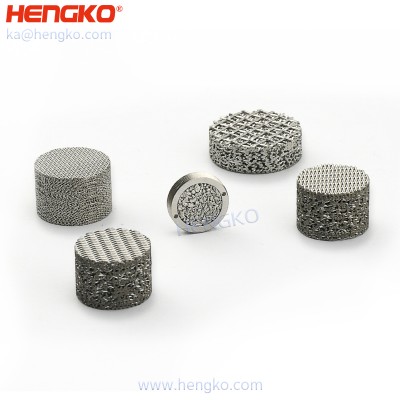
Medical grade micron stainless steel 316 316L wire mesh multi-layer plate / disc filter...
HENGKO sintered wire mesh filters have 5 sintered wire mesh layers with self-supporting construction for high mechanical strength and high-temperature resist...
View Detail -
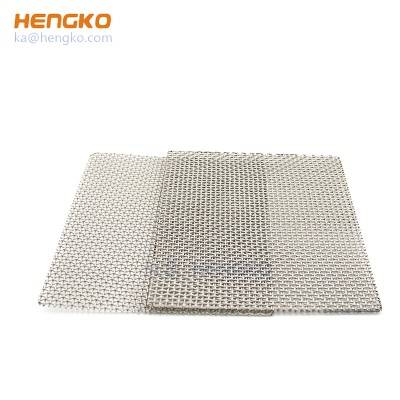
Wholesale medical grade micron stainless steel 316 SS wire mesh filter for pharmaceutic...
HENGKO medical grade stainless steel filters are usually used for purification and filtration of liquid and gas, separation and recovery of solid particles, ...
View Detail
Main Feature of Stainless Steel Mesh Filters :
1. the Vast array of filtration scores to avoid any size of particles
2. Wire mesh can be custom fabricated to any shape or application by stamped or cut
3. Easy to Clean and backwash
4 Conveniently workable, Special styles for flexibility in industrial fields
5. Improved mechanical strength with excellent resilience Suitable under thermal and
also extremely corrosive problem
6. Mesh can be marked or reduced to the size
7. Wire mesh can be rolled, welded, sintered, and soldered
8. Easy to clean and backwash
4 - Function of Stainless Steel Mesh Filters
1. To clear away undesirable fragments as well as impurities from various fluids
2. To finish the filtration procedure efficiently
3. To change traditional filter mesh under harsh environment
4. Prevent damage to equipment
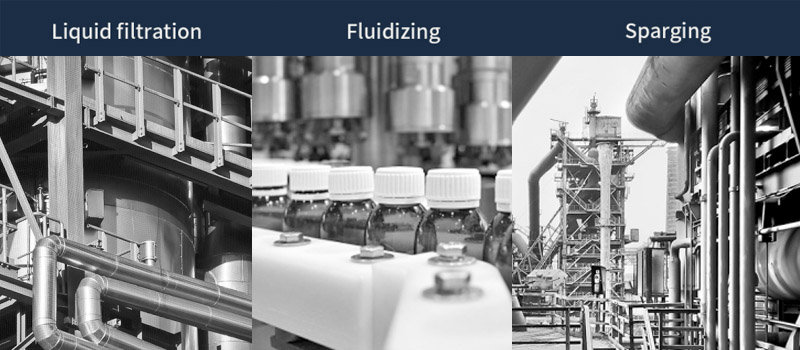
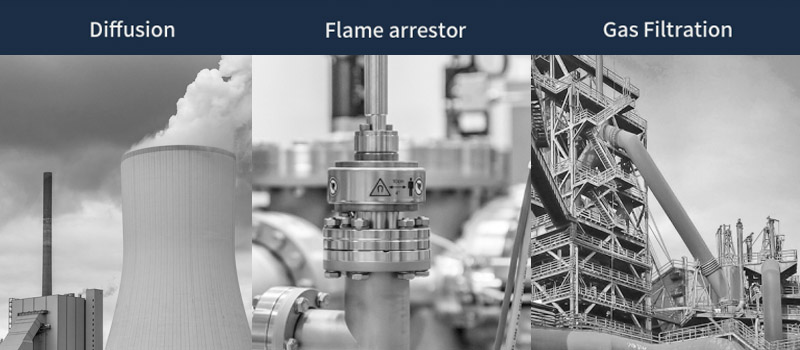
Application of Stainless Steel Mesh Filter :
Stainless steel mesh filters are highly versatile filtration solutions suitable for a wide range of applications. Their corrosion-resistant construction and customizable mesh patterns enable precise filtration of particles, contaminants, and debris.
Filtration of Liquids
Stainless steel mesh filters are ideal for filtering liquids such as:
- Beverages - Prevent sediment and ensure clarity in bottled beverages, fruit juices, and bottled water. • Process liquids - Filter impurities from chemicals, pharmaceuticals, food products, and wastewater. • Pool water - Remove debris, leaves, and other contaminants to keep pool water clean and circulating properly.
Separation of Solids
Stainless steel mesh filters are also effective at separating solids such as: • Food particles - Filter out shells, pits, stems, and other food particles during processing and preparation. • Recyclables - Separate paper, plastics, metals, and glass during recycling sorting operations. • Aggregates - Classify sand, gravel, crushed stone, and other aggregates by size for construction and industrial applications.
Customizable Solutions
Stainless steel mesh filters can be customized in terms of mesh type (woven vs. expanded), mesh count (threads per inch), and filter area to suit a wide range of filtration needs. Larger filter areas and lower mesh counts result in coarser filtration while higher mesh counts and smaller filter areas provide finer filtration.
With excellent corrosion resistance, durability, and customizable filtration, stainless steel mesh filters represent a highly versatile and professional solution for applications where precise and reliable filtration is required.
-
Aerospace
-
Chemical industry and oil/gas industries
-
Edible oil Industry
-
Metals and mining industry
-
Solvents, Paints
-
Pharmaceutical industry
-
Water and Waste Management
-
High viscosity liquids
-
sea-water desalination
-
Food and Beverage
-
Filtration, Sifting, Sizing
-
Vents
-
Baskets
-
Strainers
-
Faucet Screens
-
Insect Screens
-
Decorative wire mesh grilles
-
Guards
-
Decorative/craft applications
How to Customize Sintered Stainless Steel Mesh Filter
if you have Special Requirements for Sintered Stainless Steel Filter for your projects and can not find the same or
similar Filter products, Welcome to contact HENGKO to work together to find the best solution, and here is the
process of O.E.M Sintered Stainless Steel Mesh Filter,
HENGKO is a professional manufacturer of sintered stainless steel mesh filters. We can provide customized sintered
stainless steel mesh filters according to your special requirements if the standard products cannot meet your needs.
The process of O.E.M sintered stainless steel mesh filter includes:
1.Technical consultation:
Our engineers will consult with you on the specific requirements of your projects to determine the appropriate material,
mesh size, thickness, etc. of the sintered stainless steel mesh filter.
2.Sample making:
We will make samples based on the consultation results and send them to you for testing and verification.
Once the samples meet your requirements, we will start mass production of the sintered stainless steel mesh filters.
4.Inspection:
All products will go through strict inspections to ensure they meet the standards before delivery.
5.Packaging and shipment:
The inspected products will be packaged and shipped to you via the shipping method you specified.
We have advanced equipment and professional technicians to produce high-quality sintered stainless steel mesh filters.
We also have a strict quality management system to ensure stable and reliable product quality. If you have any other needs,
please contact us at any time. We are committed to providing you with the best solutions and services.
OEM Order Process List
1. Consultation and Contact HENGKO At First
2. Co-Development
3. Make a Contract
4. Design & Development
5. Customer Approval
6. Fabrication /Mass Production
7. System assembly
8. Test & Calibrate
9. Shipping & Installation
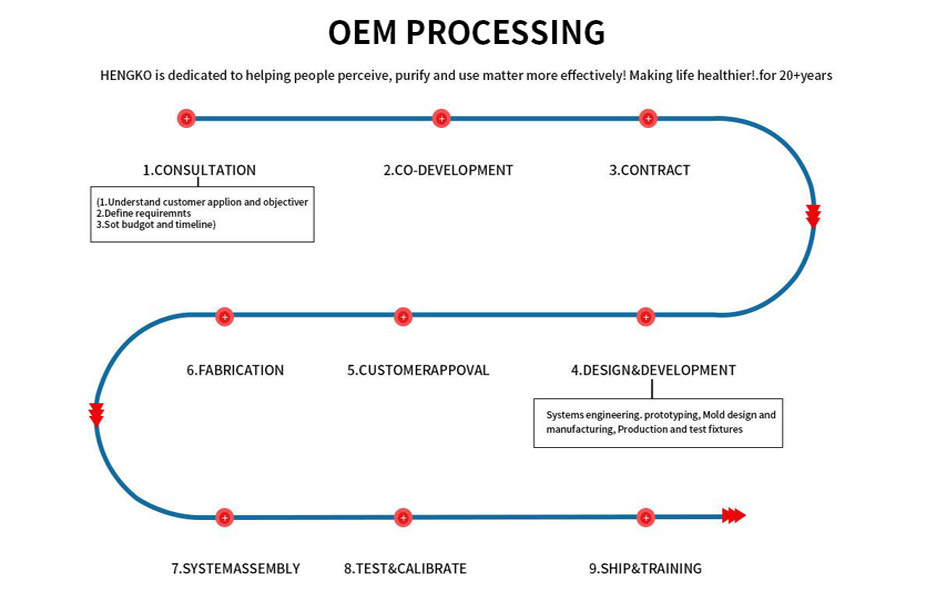
What HENGKO Can Supply For Stainless Steel Mesh Filter
HENGKO Support Various Applications on your Different requirements for Sintered Stainless Steel Mesh Filter
with customize and innovative designs as clients requirements Our Stainless Mesh Filter have a long-standing
history of being commonly used in superior industrial filtration, dampening, sparger, sensor protection, pressure
regulation and many more applications.
✔ Sintered Mesh Filter Industry Top Manufacturer of Over 20-years
✔ Unique Designs as Different size, Melt, Layers and Shapes
✔ Top Quality CE Standard to manufacturing, Stable shape, Meticulous Work
✔ Fast Solution for after-sale service
✔ Many Experience in Various filters Applications in Chemical, Food, and Beverage Industries etc
In the past 20-years, HENGKO work for many famous university all over the world, especial the lab of university,
Physics and Chemistry Laboratory, R&D laboratories of various chemical, petroleum, and food products, R&D and
production departments of production enterprises, we got many projects experience in the stainless steel mesh filter,
sintered mesh filter, so we can fast supply you perfect solution for your devices and project.

FAQ for Stainless Steel Mesh Filter
1. Can you make 5 micron stainless steel mesh filter ?
Yes, we can OEM any size and any thickness 5 micron stainless steel mesh filter,
or 5 Micron 3 Layer Sintered Stainless Mesh, 5 Micron 5 Layer Sintered Stainless Mesh
Also, we can custom any pore size, like 0.2 - 200 micron Stainless Steel Mesh Filter for
your projects.
2. What Does the Stainless Steel Mesh Do?
Stainless steel mesh is a metal screen made using stainless steel wire or other alloys. It is
commonly used in various applications, including filtration, sieving, straining, and screening.
The mesh is typically used in industries such as food processing, pharmaceuticals, chemical
processing, mining, and consumer products. Because stainless steel is resistant to corrosion
and has a high strength-to-weight ratio, it is an ideal material for use in the mesh. The mesh
can be made in various sizes and shapes, depending on the specific application it is intended for.
3. Why is Mesh Wire So Important?
Wire mesh is important in many industries and applications because of its versatility, strength,
and durability. It is used in many applications, including filtration, sieving, straining, and screening,
and is commonly used in food processing, pharmaceuticals, chemical processing, and mining.
Mesh wire is also used in consumer products, such as screens for doors and windows.
4. How Does Wire Mesh Work?
Wire mesh is a grid or screen made up of interconnected wire strands. It is used in various
applications, including filtration, sieving, straining, and screening. For mesh, a material sample
is placed on top of the mesh, and the mesh is shaken or vibrated. The material will pass through
the openings in the mesh, but any particles or objects that are too large to pass through the
mesh will be retained on top of the mesh. It allows the material to be separated into different
size ranges or components.
5. Are Metal Mesh Filters Good?
Metal mesh filters are a type of filter that uses a mesh made of metal wire or other alloys to
remove particles or other materials from a fluid or gas. They are commonly used in various
industries, including food processing, pharmaceuticals, chemical processing, and mining,
as well as in consumer products. Metal mesh filters are generally considered effective and
reliable for many filtration applications. They are durable, have a high strength-to-weight ratio,
and resist corrosion, making them well-suited for use in a wide range of environments.
In addition, metal mesh filters can be easily cleaned and reused, which makes them
cost-effective and environmentally friendly.
6. Is Stainless Steel Mesh Food Safe?
Stainless steel mesh special 316L stainless steel mesh filter is generally considered
safe for food processing and handling. Stainless steel is a non-toxic and non-leaching
material, which means it does not release any substances into food that could harm
human health. In addition, stainless steel is corrosion-resistant and easy to clean,
making it an ideal material for food processing and handling applications.
How do you clean a stainless steel mesh filter?
There are several methods for cleaning the stainless steel mesh filter, depending on the
specific type of filter and the amount of cleaning needed. Here are some general steps
that you can follow in cleaning a stainless steel mesh filter:
1. Rinse the filter with water to remove any loose debris or particles.
2. If the filter is not too dirty, you can use a soft-bristled brush or a soft cloth to gently scrub
away any remaining dirt or grime.
3. If the filter is very dirty, you can soak it in warm water and mild detergent for a few minutes
to loosen any stubborn dirt or grime.
4. Rinse the filter thoroughly with water to remove any soap or cleaning solution.
5. Dry the filter completely before using it again.
It is important to avoid using abrasive cleaners or brushes, as these can damage the
mesh and reduce its effectiveness. Drying the filter before using it again is also important,
as moisture can cause the mesh to rust or corrode.
6. What are the benefits of stainless steel mesh filters?
Stainless steel mesh filters offer several key benefits over other filter materials. They are extremely durable and long-lasting, able to withstand high pressures and temperatures without damage. They are also corrosion-resistant, chemically inert, and non-reactive so they can be used with a wide range of fluids. Stainless steel mesh filters are also very fine, able to filter even small particles and microorganisms.
7. What micron ratings are available?
Stainless steel mesh filters are available in a range of micron ratings, from 0.5 microns up to 100 microns. The micron rating refers to the size of particles that will pass through the filter. Finer micron ratings like 0.5-5 microns are good for filtering particles and microorganisms, while larger micron ratings of 20-100 microns are better for filtering larger debris and sediment.
8. How are stainless steel mesh filters used?
Stainless steel mesh filters have a wide range of applications and are used in many industries. Some common uses include: • Filtration of liquids and gases in chemical processing, pharmaceuticals, food and beverage, and biotechnology. • Sterilization of air, gases, and liquids by filtering out microorganisms. • Clarification of liquids by removing particles, sediments, and contaminants. • Pre-filtration for membrane filters to prevent clogging. • Separation of particles for sampling and analysis. • Filtration of abrasive liquids and slurries. • Filtration of corrosive liquids and gases. • Filtration of high-temperature liquids and gases.
9. What is stainless steel mesh filter?
Stainless steel mesh filters are precision-engineered filters made of corrosion-resistant stainless steel mesh. They are designed to filter particles, contaminants, and debris from liquids and gases while allowing the medium to pass through.
10.What are the benefits of stainless steel mesh filters?
Stainless steel mesh filters offer several key benefits over other filter materials. They are extremely durable and long-lasting, able to withstand high pressures and temperatures without damage. They are also corrosion-resistant, chemically inert, and non-reactive so they can be used with a wide range of fluids. Stainless steel mesh filters are also very fine, able to filter even small particles and microorganisms.
11.What micron ratings are available?
Stainless steel mesh filters are available in a range of micron ratings, from 0.5 microns up to 100 microns. The micron rating refers to the size of particles that will pass through the filter. Finer micron ratings like 0.5-5 microns are good for filtering particles and microorganisms, while larger micron ratings of 20-100 microns are better for filtering larger debris and sediment.
12.How are stainless steel mesh filters used?
Stainless steel mesh filters have a wide range of applications and are used in many industries. Some common uses include: • Filtration of liquids and gases in chemical processing, pharmaceuticals, food and beverage, and biotechnology. • Sterilization of air, gases, and liquids by filtering out microorganisms. • Clarification of liquids by removing particles, sediments, and contaminants. • Pre-filtration for membrane filters to prevent clogging. • Separation of particles for sampling and analysis. • Filtration of abrasive liquids and slurries. • Filtration of corrosive liquids and gases. • Filtration of high-temperature liquids and gases.
13.What are the advantages of stainless steel mesh filters?
Stainless steel mesh filters offer significant advantages over other materials. They are extremely durable and long-lasting, able to withstand high pressures, temperatures, and high flow rates without damage. They are also corrosion-resistant and chemically inert, suitable for use with a wide range of fluids including acids, bases, and solvents. Stainless steel mesh filters are very fine, capable of filtering even small particles, microorganisms, and contaminants. They can also be autoclaved for sterilization and reused.
14.What is stainless steel mesh filter?
Stainless steel mesh filters are precision-engineered filters made of corrosion-resistant stainless steel mesh. They are designed to filter particles, contaminants, and debris from liquids and gases while allowing the medium to pass through.
15.What are the benefits of stainless steel mesh filters?
Stainless steel mesh filters offer several key benefits over other filter materials. They are extremely durable and long-lasting, able to withstand high pressures and temperatures without damage. They are also corrosion-resistant, chemically inert, and non-reactive so they can be used with a wide range of fluids. Stainless steel mesh filters are also very fine, able to filter even small particles and microorganisms.
16.What micron ratings are available?
Stainless steel mesh filters are available in a range of micron ratings, from 0.5 microns up to 100 microns. The micron rating refers to the size of particles that will pass through the filter. Finer micron ratings like 0.5-5 microns are good for filtering particles and microorganisms, while larger micron ratings of 20-100 microns are better for filtering larger debris and sediment.
17.How are stainless steel mesh filters used?
Stainless steel mesh filters have a wide range of applications and are used in many industries. Some common uses include: • Filtration of liquids and gases in chemical processing, pharmaceuticals, food and beverage, and biotechnology. • Sterilization of air, gases, and liquids by filtering out microorganisms. • Clarification of liquids by removing particles, sediments, and contaminants. • Pre-filtration for membrane filters to prevent clogging. • Separation of particles for sampling and analysis. • Filtration of abrasive liquids and slurries. • Filtration of corrosive liquids and gases. • Filtration of high-temperature liquids and gases.
18. What are the advantages of stainless steel mesh filters?
Stainless steel mesh filters offer significant advantages over other materials. They are extremely durable and long-lasting, able to withstand high pressures, temperatures, and high flow rates without damage. They are also corrosion-resistant and chemically inert, suitable for use with a wide range of fluids including acids, bases, and solvents. Stainless steel mesh filters are very fine, capable of filtering even small particles, microorganisms, and contaminants. They can also be autoclaved for sterilization and reused.
19.What industries use stainless steel mesh filters?
Stainless steel mesh filters are used in many industries including:
• Chemical and pharmaceutical processing - For filtration and separation of chemicals, solvents, and pharmaceutical ingredients.
• Food and beverage - For clarification, sterilization, and filtration of liquids and gases.
• Biotechnology - For sterilization, clarification, and separation of biological samples and cultures.
• Microbiology - For sterilization and filtration of air, gases, and liquids used in microbiology experiments and research.
• Healthcare - For sterilization of medical gases, filtration of IV fluids, and clarification of laboratory samples.
• Semiconductor manufacturing - For filtration of corrosive chemicals and abrasive slurries used in chip fabrication.
• Nuclear industries - For filtration of radioactive fluids and high-temperature steam.
• Power generation - For filtration of hot gases, abrasive particles, and contaminants in fossil fuel power plants.
• Metalworking - For filtration of cutting fluids, coolants, and metal particles.
• Pulp and paper - For clarification and de-inking of pulp and filtration of process waters.
20. What types of stainless steel mesh filters are available?
The main types of stainless steel mesh filters include:
• Woven mesh filters - Made by electroforming stainless steel wire into mesh. Tight mesh for high filtration.
• Sintered mesh filters - Made by sintering powdered stainless steel into mesh. High porosity for low pressure drop.
• Perforated plate filters - Stainless steel plates with holes punched or laser cut in specific patterns.
• Bag filters - Stainless steel mesh bags or sleeves used as disposable or reusable filter media.
• Cylindrical filters - Stainless steel mesh wrapped around the outside of a support tube or cage.
• Panel filters - Stainless steel mesh sheets with a frame to form flat panel filters.
• Bag-in/bag-out filters - Disposable stainless steel mesh bag filters that can be removed and replaced while the filter housing remains in line.
Still Have Questions and Like to Know More Details For the Sintered Stainless Steel Mesh Filter, Please feel Free To
Contact Us Now. Also You Can Send Us Email Directly As Follow : ka@hengko.com
We Will Send Back With 24-Hours, Thanks for Your Patient !
